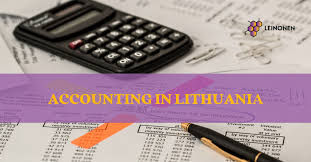New EU Tax Rule Changes for Small Businesses Starting July 2025 – What You Need to Know
- V K
- Jul 24, 2025
- 3 min read
The European Union is introducing major VAT reforms for small businesses from July 2025. These changes are designed to simplify cross-border trading, reduce compliance burdens, and address new digital and crypto-economy realities. Below is an accurate breakdown of what’s changing and how it will affect SMEs across the EU.

Key VAT Exemption Thresholds
Domestic VAT Threshold:Each EU country can set its own VAT registration threshold for small businesses, but it cannot exceed €85,000 per year. For example, Lithuania has opted for a lower threshold (currently €45,000), while others like Belgium set it at €25,000. There is no single EU-wide threshold of €25,000—all thresholds up to €85,000 are valid and set nationally.
Cross-Border (EU-Wide) Threshold:For cross-border sales within the EU, a pan-European threshold of €100,000 annual turnover now applies. If a small business’s EU-wide (not per country) taxable sales are below €100,000, and they do not exceed the domestic threshold in any individual country, they will not need to register for VAT in those other member states. Instead, they can operate under a simplified “EX” VAT regime and file quarterly returns in their country of establishment.
Digital Reporting Requirements
Current State (2025):Most EU countries still use quarterly or annual VAT reporting. However, the EU’s ongoing “VAT in the Digital Age” (ViDA) initiative will soon allow member states to adopt real-time reporting (RTR) and mandatory e-invoicing. Full monthly, real-time reporting is not yet required EU-wide for all businesses as of 2025. The rollout of full RTR across all member states is planned for 2030, with some states possibly adopting earlier.
Upcoming Changes:Be prepared for gradual increases in digital VAT requirements, including e-invoicing and more frequent reporting, as the transition to real-time digital tax administration continues.
Crypto Asset Rules:From 2026, the new DAC8 directive comes into force across the EU. All companies accepting crypto-assets or operating as crypto service providers will be required to report crypto-to-fiat and certain other crypto transactions to tax authorities. Detailed data will need to be submitted annually, covering user identity and transaction amounts—this marks a significant increase in compliance for crypto-active firms.
Who Is Affected
Small Businesses and Sole Traders:SMEs, freelancers, and sole traders must track domestic turnover against their own country’s VAT threshold (from as low as €20,000 up to €85,000, depending on the country) and observe the new €100,000 EU cross-border threshold.
Crypto-Active Businesses:Companies using or accepting crypto must prepare for detailed reporting obligations under DAC8 commencing in 2026.
Freelancers and Micro-Enterprises:Those working internationally within the EU may benefit from the cross-border VAT exemption once registered under their home state’s “EX” regime.
VAT Exemption Thresholds Table (2025)T
Threshold Type | EU Max/Standard | Lithuania Example | Belgium Example | Key Rule |
Domestic Threshold | €85,000 | €45,000 | €25,000 | Set per country, ≤€85k |
Cross-Border (EU) | €100,000 | €100,000 | €100,000 | Cumulative EU sales |
Practical Advice
Monitor Your Turnover:Ensure your sales in each market and EU-wide stay within the exemptions relevant to your business.
Register for the EX Identifier:Use the new “EX” regime if you plan to take full advantage of the pan-EU SME VAT simplification.
Stay Informed About Reporting Changes:The timing for digital reporting, e-invoicing, and real-time monthly RTR varies by country and business size. Monitor national tax developments and be ready to update your systems before full RTR is mandatory.
Crypto Firms:Begin preparing your systems for comprehensive crypto transaction reporting under DAC8, starting with data collection in early 2026.
The Bottom Line
These reforms bring streamlined VAT exemption thresholds, prepare businesses for a digital-first tax era, and regulate the fast-growing crypto sector. Proper understanding of your local and EU thresholds, timely compliance updates, and careful tracking of future reporting obligations will ensure your small business or startup is ready to thrive in the new EU regulatory landscape.



Comments